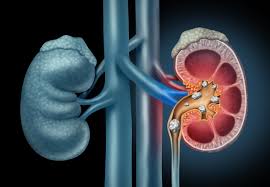
KIDNEY STONES
Date:
Author:
Short Description:
Kidney Stones: A Painful Reality
Kidney stones, also known as renal calculi, are hard deposits that form in the kidneys. These stones can cause severe pain when they pass through the urinary tract. While they are often treated successfully, preventing kidney stones is crucial to avoid future discomfort.
Full Article
What Causes Kidney Stones?
Several factors can contribute to the formation of kidney stones, including:
- Dehydration: Drinking insufficient fluids can lead to concentrated urine, which can increase the risk of stone formation.
- Diet: Consuming too much sodium, animal protein, or oxalate-rich foods can elevate the risk of kidney stones.
- Family history: A family history of kidney stones can increase your susceptibility.
- Certain medical conditions: Conditions like hyperparathyroidism, gout, and urinary tract infections can raise the risk.
- Medications: Some medications may increase the risk of kidney stones as a side effect.
Symptoms of Kidney Stones
The most common symptom of kidney stones is severe pain in the side or back, often radiating to the groin or abdomen. Other symptoms may include:
- Blood in the urine
- Nausea and vomiting
- Frequent urination
- Painful urination
- Fever
Treatment for Kidney Stones
The treatment for kidney stones depends on their size and severity. Small stones may pass on their own with increased fluid intake and pain medication. Larger stones may require medical procedures, such as:
- Shock wave lithotripsy (SWL): This non-invasive procedure uses shock waves to break up stones.
- Ureteroscopy: A thin scope is inserted through the urethra to reach the stone, which can then be removed or broken up with a laser.
- Percutaneous nephrolithotomy (PCNL): For very large stones, a small incision is made in the back to access and remove the stone.
Preventing Kidney Stones
To reduce your risk of kidney stones, consider the following tips:
- Stay hydrated: Drink plenty of water throughout the day.
- Watch your diet: Limit your intake of sodium, animal protein, and oxalate-rich foods.
- Maintain a healthy weight: Obesity can increase the risk of kidney stones.
- Manage underlying medical conditions: If you have conditions like diabetes or gout, work with your doctor to manage them effectively.
